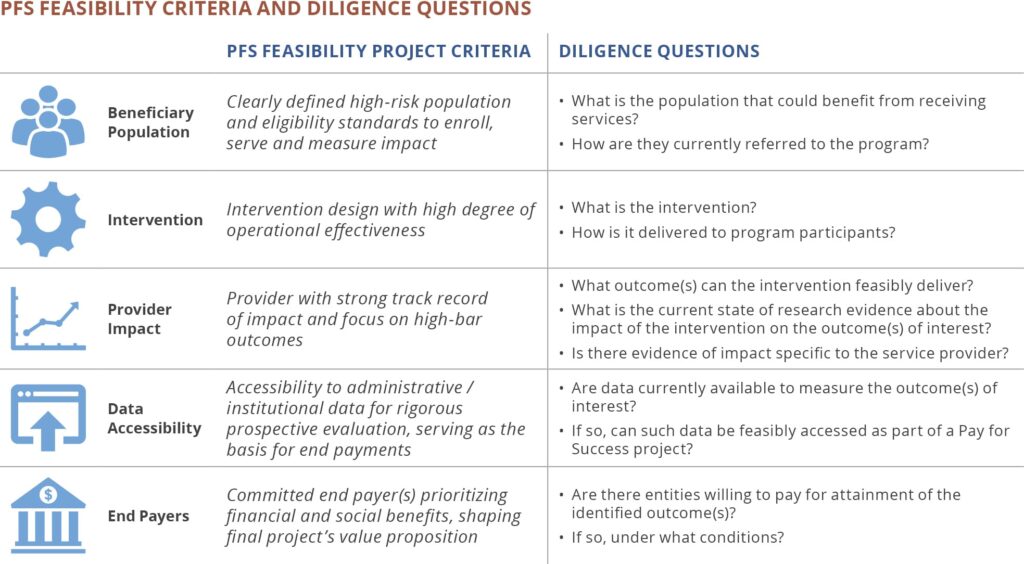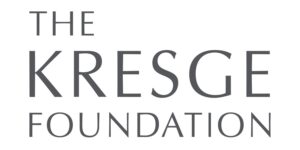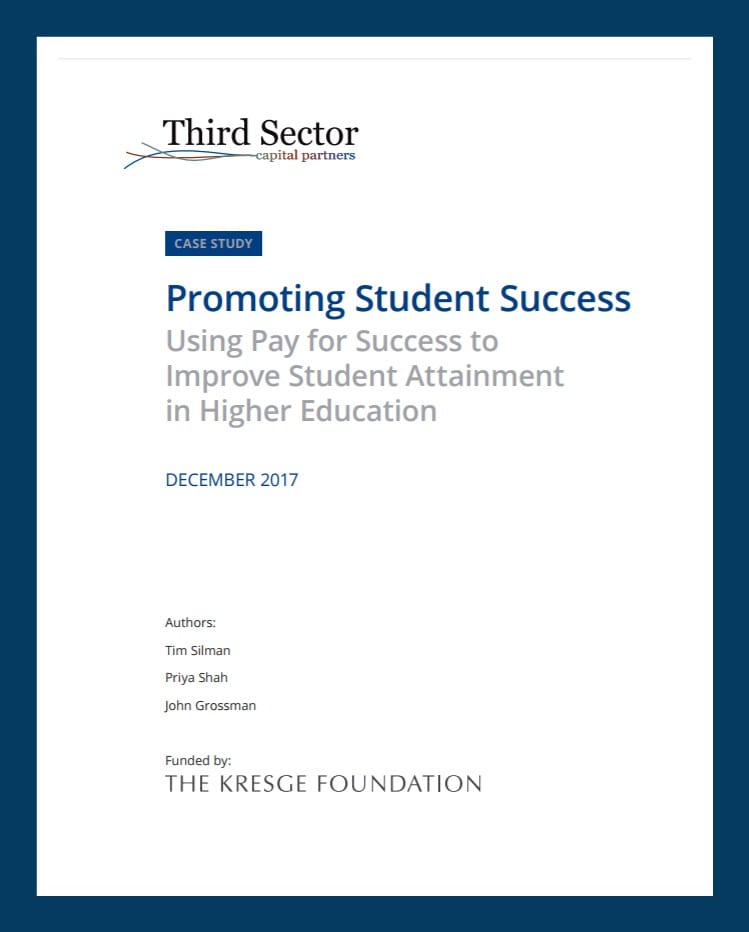Higher education is undergoing an important transition. Longer-term metrics such as persistence, graduation, and labor market outcomes, rather than student enrollment or other interim measures, are increasingly driving the conversation about how we structure and pay for post-secondary education.
Pay for Success (PFS) is a mechanism deployed in other policy areas to facilitate the shift to an outcomes orientation that may hold promise in accelerating this transition in higher education. Working with uAspire, a national provider of college affordability and financial aid counseling serving primarily low-income and first-generation students, Third Sector recently completed a PFS feasibility assessment designed to evaluate the appropriateness of PFS for higher education, with a focus on improving student matriculation, persistence, and ultimately graduation.
We conducted interviews with almost two dozen stakeholders across a diverse set of organizations to develop a preliminary assessment of PFS in higher education. Our analysis was anchored by an initial focus on text-based student support services offered by uAspire; however, this work was designed to generate lessons that are broadly applicable to other types of interventions or programs in the college access and success field.

Promoting Student Success: Using Pay for Success to Improve Student Attainment in Higher Education is an attempt to distill those lessons for stakeholders interested in exploring how PFS may hold promise for achieving better outcomes for students pursuing postsecondary education.
Our analysis led us to develop three specific recommendations for organizations in exploring PFS as a method for improving long-term outcomes in higher education:
- Identify jurisdictions ready for Pay for Success
- Develop actionable insights for potential PFS stakeholders
- Conduct PFS pilot projects
While each of the challenges outlined above must be addressed in turn to bring a successful PFS project to fruition, certain issues are more critical to address at this early juncture. From our perspective, the most important of these challenges to be addressed by stakeholders pursuing PFS are the identification of project end payers (government entities willing to pay for outcomes) and developing research evidence specific to how services would be delivered in the PFS project. Successfully addressing these will likely help solve the remaining challenges our assessment identified.
There is clear opportunity for PFS to enable the expansion of college access and success services and support stakeholders in their pursuit of better outcomes for at-risk students. Our hope is that this case study provides practitioners with a starting point for exploring this opportunity in practice.
Resources
Download the Case Study.
Read co-author Tim Silman's blog post about Third Sector's engagement with uAspire that led to the case study.
Funded by:


